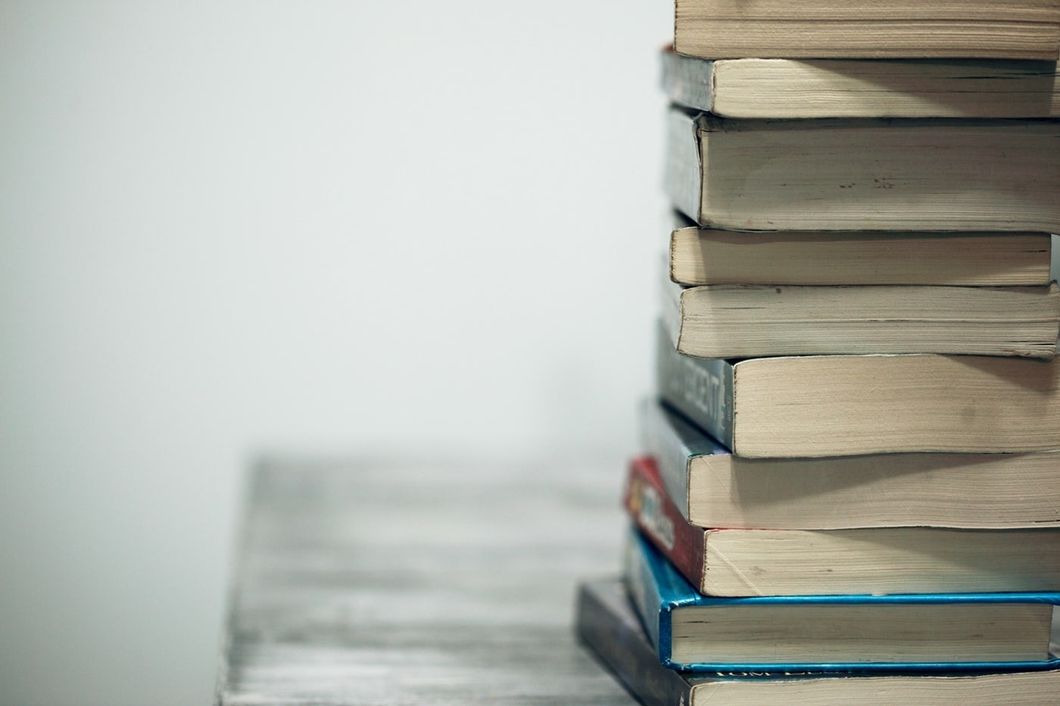Everyone and I mean everyone who went to school had to learn to read. Reading is a really important skill to have, it's a way of communicating in society. Just like any skill, reading needs to be practiced. So it makes sense that over the years, we've had to do a lot of reading in school. From historical plays to short stories, to novels, to poetry, we've all read a form of each genre.
Schools also try to get its students to read certain books that are considered "classics." I graduated high school in Mass and currently go to college in Rhode Island, nearly everyone I've met had to read "The Great Gatsby" and "To Kill a Mockingbird" in school. I'm currently an English major in my third year of college, and so far I've had to study "Hamlet" twice, and "Macbeth" three times. The first time for both in high school and then the other times in college.
I do think it's important for students to be exposed to classic literature. After all, important literature that was written at the time is a gateway into the history and cultural values of the time. Scientific study has proven that reading helps create more empathy, and reading literature from the past can help us connect with the past.
But I do think there are drawbacks. For one thing, a lot of the text I've had to read for school is just boring. People assume that because I'm an English major I enjoy everything I read. Well, this is not true. Most people don't like every movie they've seen, so why should I love every book I read? What high schooler is gonna enjoy reading "Beowulf," or the "Canterbury Tales?" I also absolutely detest "Great Expectations" by Charles Dickens. But alas, I had to read them all in my honors English class junior year of high school.
There have been classics that I've greatly enjoyed, "Animal Farm," "A Farewell to Arms," and "Lord of the Flies" among them. But not all teenagers are gonna enjoy reading books written by dead white guys that have been around for a hundred years. I think schools should work on incorporating books with more diverse authors. I can only recall having read one book written by a woman of color in high school.
High schools should also work on working in more young adult books into the curriculum. Those are books written for teenagers, why not utilize them? Dystopian themes found in "1984" can also be easily found in "the Hunger Games." If an English teacher wants to read literature about World War II like "Slaughterhouse-five," why not also read "The Book Thief?"
Technically the only young adult book I read in high school was "The Catcher in the Rye," beloved by some and hated by others (I fall somewhere in the middle). Young adult books would be beneficial to teenagers because they're reading about a protagonist that is their age, therefore easier to relate to. Being able to see yourself represented in a book is a very powerful thing. Recent young adults have had some amazing representation in recent years. In the past few years, I've read books with main characters of all ethnic backgrounds and sexual orientations. Some are even great gateways into talking about problems in the world. "The Hate U Give" by Angie Thomas, for example, addresses police brutality, and "The Sun is Also a Star" by Nichola Yoon, addresses deportation in the United States.
So yeah, young adult books aren't just about sexy vampires. It is a genre that has gems that can be used to study in school, and even start important conversations. It doesn't matter that the main character is a teenager, the book still has the potential to become a classic worth our attention.























